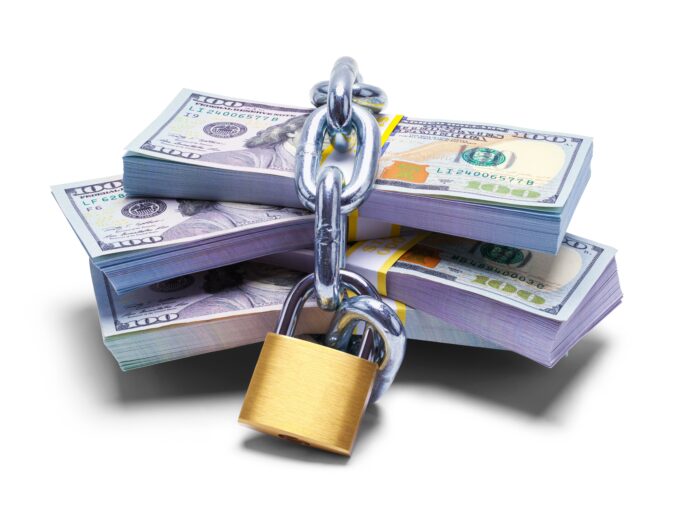Redistribute The Pain 2024: Revisiting the call for economic justice and unity during ‘holiday’ season
“Don’t spend your money up on Thanksgiving! And the day after, isn’t that what is called ‘Black Friday’? I would like to see ‘Black Friday’ absent of Black and Brown people.
“Can you imagine on ‘Black Fridays’ in the past when we’ve rushed to the big stores, and you would watch them watching us: I want them to watch for us; that we won’t be there.
“On ‘Black Friday,’ ‘Black Saturday,’ ‘Black Sunday,’ all the way to the New Year, put your money in your pocket.”
—The Honorable Minister Louis Farrakhan,
“Why We Are Calling You To Boycott Christmas,” November 16, 2015
As the 2024 “holiday” season approaches, large, multi-billion-dollar retail outlets have already bombarded television and social media with advertisements and commercials to encourage and influence consumers to once again spend their hard-earned money on products and goods to fatten their coffers. This takes place amid ongoing injustices plaguing Black and poor people around the country.
The Honorable Minister Louis Farrakhan’s clarion call for economic boycotts of the holiday spending season came in the months leading up to the 20th Anniversary of the Million Man March held on October 10, 2015, themed, “Justice or Else.”
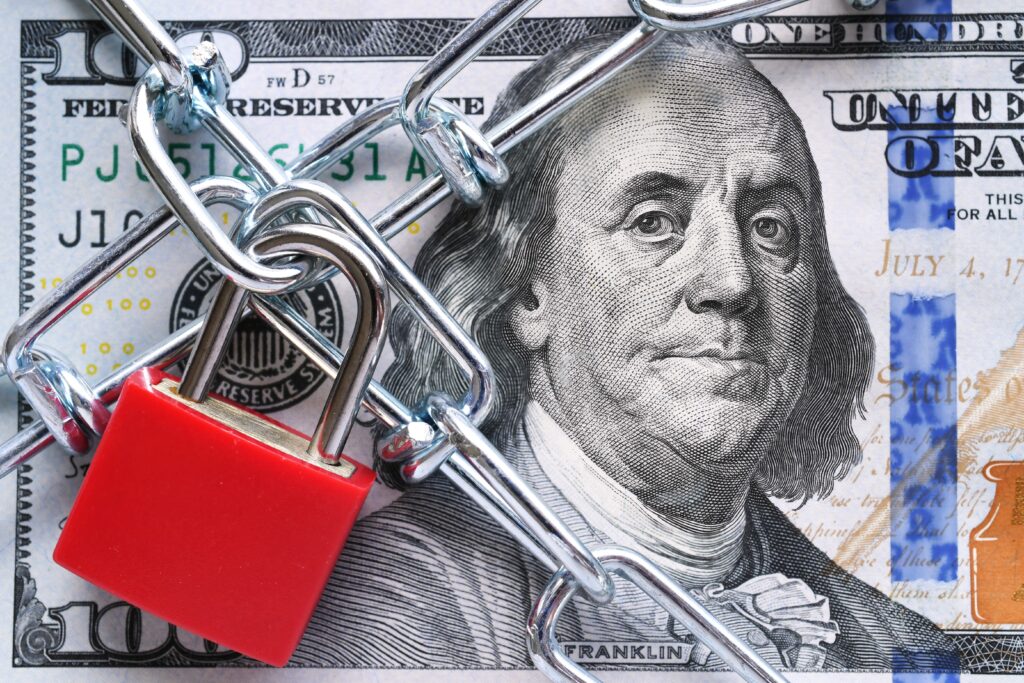
However, Minister Farrakhan’s call remains relevant nearly a decade later, prominent economists and activists told The Final Call, citing its purpose, impact, and enduring significance.
“Minister Farrakhan is one of the few Black people that most Black people really listen to. Most Black people respond to Farrakhan more than they respond to (America’s first Black president) Barack Obama …,” stated Dr. Boyce Watkins, creator of the All Black National Convention, who is also an author, businessman and founder of The Black Business School.
“(Minister) Farrakhan is a person who has done the work, who’s been connected to the community in a very deep way and has an amount of credibility that millions of other individuals will never have. So, him calling for an economic boycott is very significant, and I think at this point, it should be a permanent boycott,” Dr. Watkins told The Final Call.
He stated that he could not think of anything so-called powers could do by Christmas that could justify Black people not continuing an indefinite boycott. “There are so many better things for us to do with our money than to go spend it at Walmart anyway,” continued Dr. Watkins.
The call is not just important right now, but boycotting non-Black businesses should be the default state of the Black community, he said. “… we’ve got to focus on ourselves, anyway,” but permanently, he continued.
“We are our own top priority. And I think that will lead to a multi-trillion-dollar wealth transfer right there,” Dr. Watkins concluded.
Economic withdrawal
The false observance of the life of Jesus is mired by merchants of profit and death who are seeking to capitalize on society’s emotions and insecurities.
Is joy seen on the people’s faces or is a foul spirit emerging? asked Student Minister Ishmael Muhammad, National Assistant to the Honorable Minister Louis Farrakhan, during remarks from his keynote message, “The Will of God,” delivered from Mosque Maryam in Chicago on Nov. 17.
“Go into the shopping malls. Black Friday coming up. You’d better be Black and stay at home,” said Student Min. Ishmael Muhammad, hearkening to the Bible scripture, Revelations 18:4. “And I heard another voice from heaven, saying, Come out of her, my people, that ye be not partakers of her sins, and that ye receive not of her plagues,” it reads.
“Come out of her. Why are we going to spend money that we don’t even have?” questioned Student Min. Ishmael Muhammad during his message. From Thanksgiving to Christmas, money will be spent during a holiday supposedly honoring the birth of who, he asked? “Jesus? Well, where is Jesus?
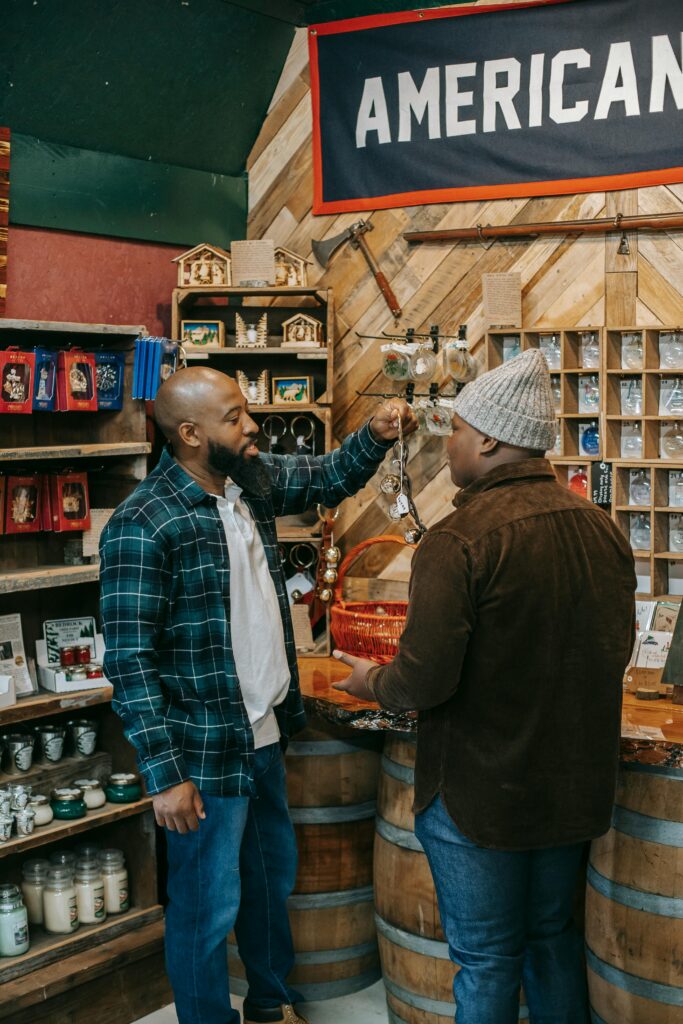
It’s Santa,” he continued, citing pagan practices. “… and you don’t even realize that in all your, ‘I love Jesus. The Lord, Jesus is my Saviour,’ … and you’re decking the tree with silver and gold, (and) don’t even know or realize how you’ve been duped, how you’ve been deceived,” he stated.
“For the Bible says, do not follow the ways of the heathens. They go into the forest and cut down trees and fasten it and deck it with silver and gold. Preacher ain’t even preaching that, yet, claims to be following Jesus Christ while promoting the way of the pagans and heathens,” he continued.
“Will you stop it! Please,” he remarked, regarding justifications that such practices are for the children. “That’s why we encourage our people in this so-called holiday season, ‘Up with Jesus! Down With Santa!’” Student Min. Ishmael Muhammad told the audience.
Minister Farrakhan’s call was inspired by a call made by Dr. Martin Luther King Jr. to “redistribute the pain.”
“Go and Google, search the terms, ‘Dr. King’ and ‘the last night of his life’ and you will find a speech where in Dr. King was talking about ‘justice,’ and Dr. King was talking about ‘land,’ Dr. King knew death was on him, and he told the people at Mason Temple COGIC in Memphis, Tennessee, on April 3, 1968, in his speech ‘I’ve Been to the Mountaintop’:
‘We have to redistribute the pain; when we’re in pain, we’ve gotta make them feel pain,” said Minister Farrakhan in his message, “What is Justice?—Redistribute the Pain through Our Economic Withdrawal,” delivered July 17, 2015.
“That’s what he said!” continued Minister Farrakhan, quoting from Dr. King. “He said, ‘Tomorrow tell the neighbor, Don’t buy Sealtest milk.’ Tell them ‘Don’t buy Coca-Cola in Memphis.’ Tell them ‘Don’t buy Wonder bread and Hart’s bread.’—he (Dr. King) said: ‘We don’t have to argue with anybody.
We don’t have to curse and go around acting bad with our words. We don’t need any bricks and bottles. We don’t need any Molotov cocktails. We just need to go around to these stores, and to these massive industries in our country, and say, ‘God sent us by here, to say to you that you’re not treating his children right.
And we’ve come by here to ask you to make the first item on your agenda fair treatment, where God’s children are concerned. Now, if you are not prepared to do that, we do have an agenda that we must follow. And our agenda calls for withdrawing economic support from you,’”Minister Farrakhan quoted.
Buying power and buying Black
Minister Farrakhan’s call for an economic boycott was extremely important because he brought economics to the forefront of Black people’s concerns, noted Delxino Wilson de Briano, president of TAG TEAM Marketing, which stands for The African Group—Together Everyone Achieves More.
“Before that, many of us focused on social issues but ignored the fact that we were financing our own oppression by buying from our oppressors. The Minister put our attention on the source of the problem and gave us something to do about it,” Mr. Wilson de Briano told The Final Call.
“Absolutely!” The Minister’s call is still relevant today, he said. Blacks still spend the vast majority of their money buying outside of their communities, making other ethnicities richer each year with $1.8 trillion in annual buying power, while leaving themselves poor, Mr. Wilson de Briano said. The solution is still the same—boycott those other businesses, and buy from Black-owned businesses, he added.
Black businesses are gaining ground with Black people economically, more exist today than ever before, and more are starting every day, said Mr. Wilson de Briano. “Most importantly, more and more of us are realizing the importance of buying Black and are committing to buying everything we can from Black-owned businesses,” he stated.
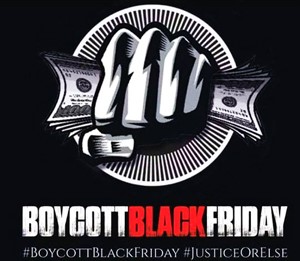
For example, he and his wife, Debbie, co-founded TAG TEAM Marketing, which launched GarveyNation.com in 2024 as a self-contained, online nation for people of Indigenous African descent, powered by the Buy Black Movement.
It was specifically created to get millions of Black people buying from Black-owned businesses thereby making a way for Black people to create jobs and reduce poverty, drugs and crime in Black communities.
“At GarveyNation.com, we have experienced incredible success uniting Black people to buy from our Buy Black Movement online store, consistently. We have united over 77,000 Black consumers in 158 countries around the world to Buy Black, so far. We have sold, shipped, and delivered over a quarter of a million Black-made products to Black consumers so far,” stated Mr. Wilson de Briano.
The tremendous Black buying power today is $1.8 trillion in 2024, according to a recent report by NIQ (Nielsen Global Connect), which provides analytical data about consumer habits.
In the past year alone, Black consumer purchasing—focused, targeted, selective acquiring of something—reached $207 billion in the past year, setting the pace for total market growth at 5-6 percent, according to the report, titled, “Pioneering Possibilities—Diverse Voices Black Consumer Report 2024.”
The growth rate for Black people’s spending is 6 percent compared to the U.S. growth rate of 5.5 percent, according to the report. It is on pace with Total market growth and setting the pace for many categories across the store, the report continued.
Shut them down and build us up
Minister Farrakhan’s call in 2015 and the “Up With Jesus, Down With Santa” movement was so important and produced such an effect that it cost the retail industry significant losses.
Today, retailers are still feeling the pinch. “U.S. retailers are closing stores at a record pace in 2024,” read the headline of an online article by Nathaniel Meyersohn dated October 25, on CNN. “Family Dollar has announced 677 store closings this year. Walgreens is closing 259. Big Lots is closing 360. LL Flooring is shutting down entirely,” wrote Nathaniel Meyersohn in the article.
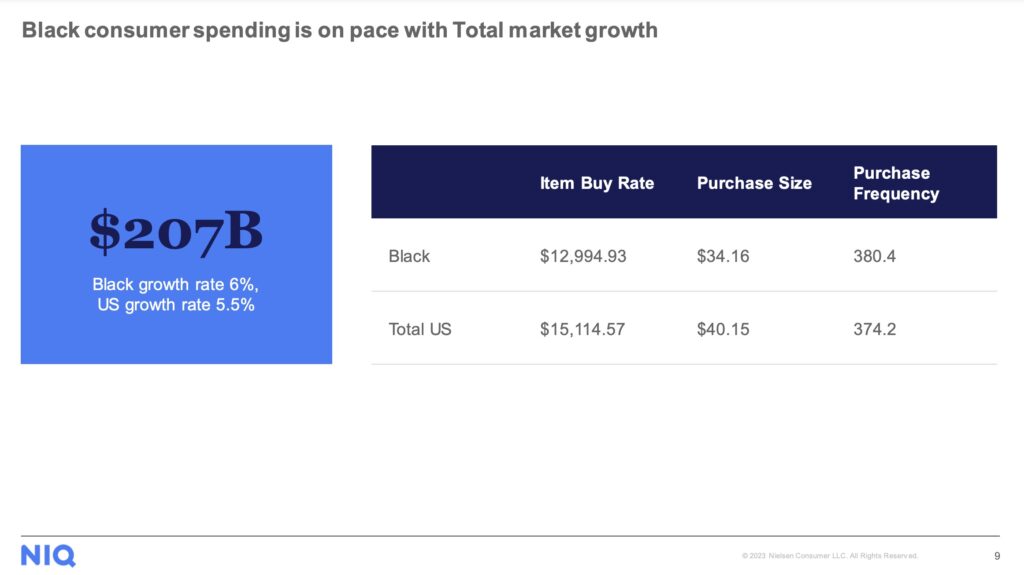
According to a recent report by NIQ (Nielsen Global Connect), Black buying power has increased.
Graphic: NIQ
“Major retailers have announced 6,189 store closures so far this year, already outpacing last year’s total of 5,553, according to Coresight Research. Chains are on track to close the highest number of stores in 2024 than any year since 2020, when the COVID-19 pandemic decimated the industry,” Mr. Meyersohn wrote.
Dr. Melina Abdullah stated the significance of Minister Farrakhan’s call to “redistribute the pain,” meant that Black people must take Black dollars out of the White corporations that benefit and call for Black death. Dr. Melina Abdullah was an independent vice-presidential candidate on the ticket with Dr. Cornel West, and is co-founder of Black Lives Matter-Grassroots.
“It meant we have to, as we fight back against state-sanctioned violence against Black people, we have to remember that these mechanisms—policing—are used by White supremacy to really uphold White supremacy,” Dr. Abdullah told The Final Call.
Picking up where Dr. King left off to redistribute the pain is significant and spending if necessary with Black people is a key to Black Lives Matter Grassroots’ Black XMAS, which is based on three tenets: building Black, buying Black and banking Black, Dr. Abdullah explained.
“That means we also have to shake off this consumerist frenzy, the idea that White supremacist capitalism wants you to spend, spend, spend, and tries to whip us into this consumerist frenzy that we have to be buying things that we don’t need.
We start with the premise of building Black, rather than spending monies on items that we don’t need, and becoming these rampant consumers,” explained Dr. Abdullah. Banking Black means removing money from White owned banks that are complicit in the theft and harm that’s brought to Black communities, she added.
Minister Farrakhan spoke on some of the repercussions of what actions Black people could take if the injustices continued.
“Dr. King said, ‘Well, if you don’t want to be fair with us, we’re just going to practice economic withdrawal. We’re going to redistribute the pain,’” the Minister stated in his ‘“What is Justice?’— Redistribute the Pain Through Our Economic Withdrawal,” message.
“The 20th Anniversary is on ‘10.10.15’—but Christmas is right around the corner,” the Minister pointed out then. “We have to distribute some pain!‘Black Friday,’ the day after Thanksgiving:
You should not show up at any market spending money that you don’t have, buying Christmas gifts for those you love—you’re feeding the economy of those that hate you!
And with Christmas and Black spending, they make enough money for the whole year of business to be profitable. Let’s distribute the pain,” Minister Farrakhan said.












